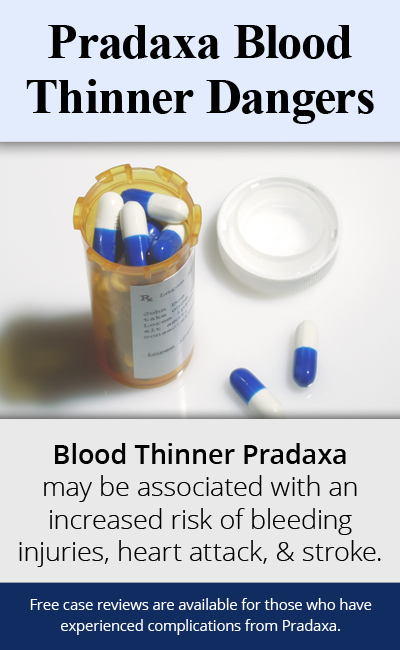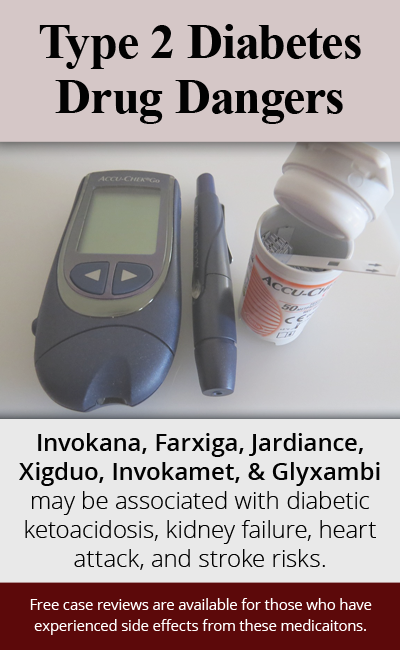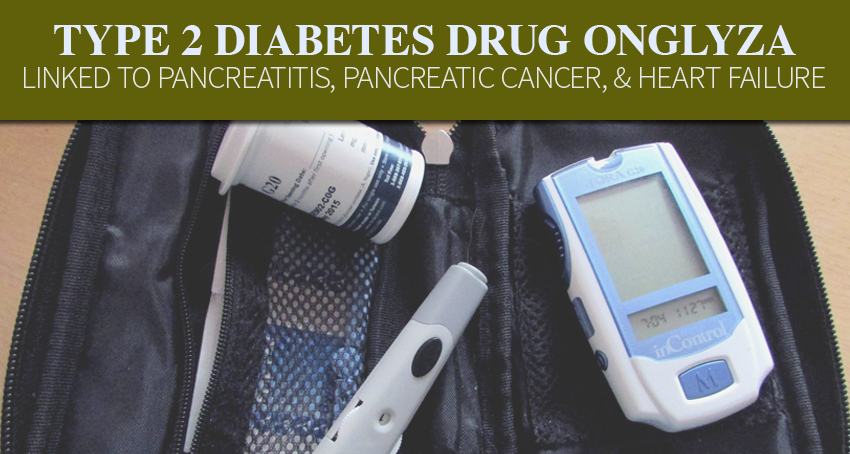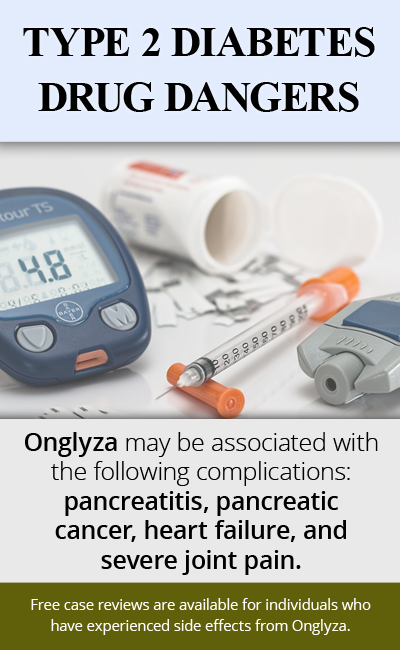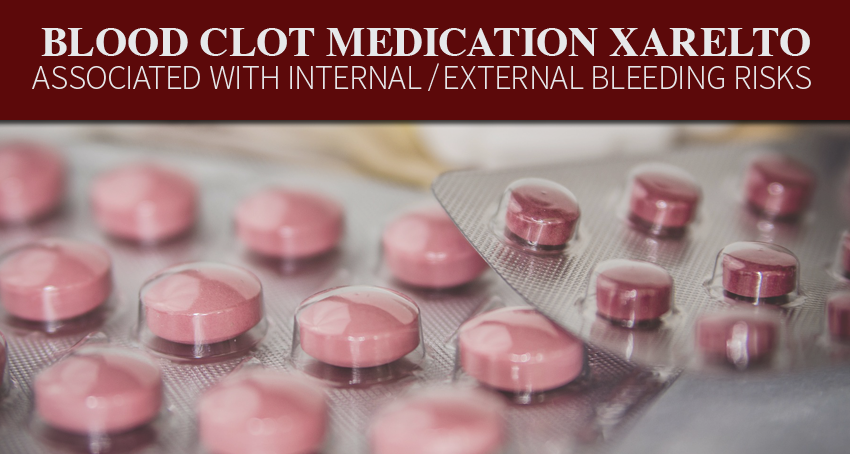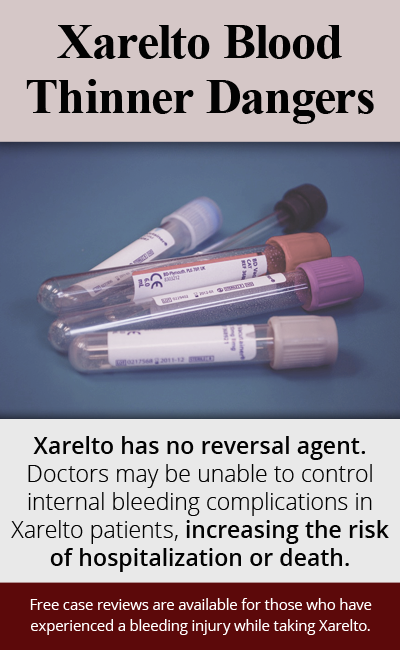You may be entitled to compensation for your alleged Eliquis injuries, medical expenses, and pain and suffering, which you can pursue by filing an Eliquis lawsuit against Pfizer and Bristol-Myers Squibb.
What is Eliquis?
Eliquis (apixaban) is a controversial blood thinner manufactured and marketed by Bristol-Myers Squibb and Pfizer, and prescribed to reduce the risk of strokes and blood clots in patients with non-valvular atrial fibrillation, a medical condition characterized by an irregular heartbeat. Since it was approved by the U.S. Food and Drug Administration (FDA) in 2013, Eliquis has been touted as a superior alternative to warfarin, a blood thinner that has been on the market for decades, due to the fact that the new-generation drug, like its competitors Pradaxa and Xarelto, does not require regular blood monitoring during treatment.
The way Eliquis and other new-generation anticoagulant drugs work is by thinning patients’ blood, thereby reducing the likelihood of blood clot formation, and decreasing the risk of stroke. However, there is no approved antidote for Eliquis, which means doctors are unable to reverse the blood-thinning effects of the medication in the event of a severe bleeding problem. Prior to clearing Eliquis for the prevention of strokes and blood clots in a-fib patients, the FDA twice delayed the drug’s approval while waiting for the results of ARISTOTLE, a clinical trial that compared the safety and effectiveness of Eliquis to warfarin.
Why is there an Eliquis Lawsuit?
Eliquis and other new-generation blood thinners have been marketed as revolutionary drugs, promising patients significant benefits over older anticoagulants, like warfarin. However, unlike traditional blood thinners, Eliquis and other new-generation anticoagulants were approved without an antidote, which means there is no available drug to stop Eliquis’ potentially life-threatening bleeding problems. Patients taking Eliquis to reduce their risk of strokes and blood clots are now pursuing legal claims against Pfizer and Bristol-Myers Squibb, alleging that the drug makers overstated the benefits of Eliquis, while downplaying its potential side effects.
Thousands of similar product liability lawsuits have been brought against the makers of Pradaxa (dabigatran) and Xarelto (rivaroxaban), two popular blood thinners that have been linked to severe bleeding events and deaths in users, alleging that the manufacturers of these controversial drugs failed to warn about their potential risks. In 2014, Boehringer Ingelheim settled more than 4,000 Pradaxa lawsuits for $650 million, and that same year, the U.S. Judicial Panel on Multidistrict Litigation (JPML) consolidated more than 500 Xarelto lawsuits alleging uncontrollable bleeding, brain hemorrhaging and intestinal bleeding in the Eastern District of Louisiana.
Side Effects Linked to Eliquis
Because anticoagulant medications work by thinning the blood, they put users at a greater risk of uncontrollable bleeding complications, which can lead to hospitalization or death. The most common side effects allegedly associated with Eliquis treatment include the following:
- Internal bleeding requiring hospitalization
- Gastrointestinal (GI) bleeding
- Rectal bleeding
- Kidney bleeding
- Cerebral hemorrhages
- Death
Internal bleeding is a known side effect of all anticoagulant drugs, including Eliquis, Pradaxa and Xarelto. Unfortunately, because there is no approved antidote for Eliquis, bleeding events associated with the drug cannot be easily controlled
Links to Eliquis Studies Alleging Side Effects
The deciding factor in the FDA’s approval of Eliquis, after delaying its clearance for nine months, was the ARISTOTLE study, which found that a-fib patients taking Eliquis had fewer strokes than those on warfarin. However, this study was found to be incredibly flawed, with serious problems that included inaccurate and missing data, failure to report deaths and other adverse events, patients receiving incorrect medications, and patients receiving incorrect dosages of medications. The study also found that both Eliquis and warfarin put users at risk for gastrointestinal bleeding and other potentially life-threatening side effects.
Recent Eliquis News
The first Eliquis lawsuit was filed in July 2015, on behalf of Donald Herschell, who died while taking the blood thinner, prescribed to him in 2014 to treat his irregular heartbeat. A few months after beginning treatment with Eliquis, Herschell reportedly suffered irreversible gastrointestinal bleeding, and died in a hospital the same day. Herschell’s wife, Deborah, filed the Eliquis lawsuit in the Southern District of New York, alleging that Pfizer and Bristol-Myers Squibb, among other things, misled consumers and the medical community about the safety and effectiveness of Eliquis by failing to disclose errors in the ARISTOTLE study. At least two other Eliquis lawsuits have been brought against Pfizer and Bristol-Myers Squibb, both in Alabama federal court.
How Do I Join the Eliquis Lawsuit?
Lawsuits brought against Pfizer and Bristol-Myers Squibb over possible Eliquis side effects allege that the manufacturers misrepresented the safety of the medication in direct-to-consumer marketing campaigns, were negligent in their design, research, manufacturing and marketing of Eliquis, failed to warn about the risks associated with an anticoagulant drug that has no antidote, and fraudulently conducted a clinical trial in an effort to conceal the risk of Eliquis side effects. Patients who took Eliquis and have since suffered severe bleeding events requiring hospitalization, and those who have lost loved ones to alleged Eliquis bleeding complications, may be entitled to financial compensation for their injuries, emotional distress, lost earnings and economic damages. Contact a knowledgeable Eliquis attorney today to discuss the possibility of filing an Eliquis lawsuit against Pfizer and Bristol-Myers Squibb.


